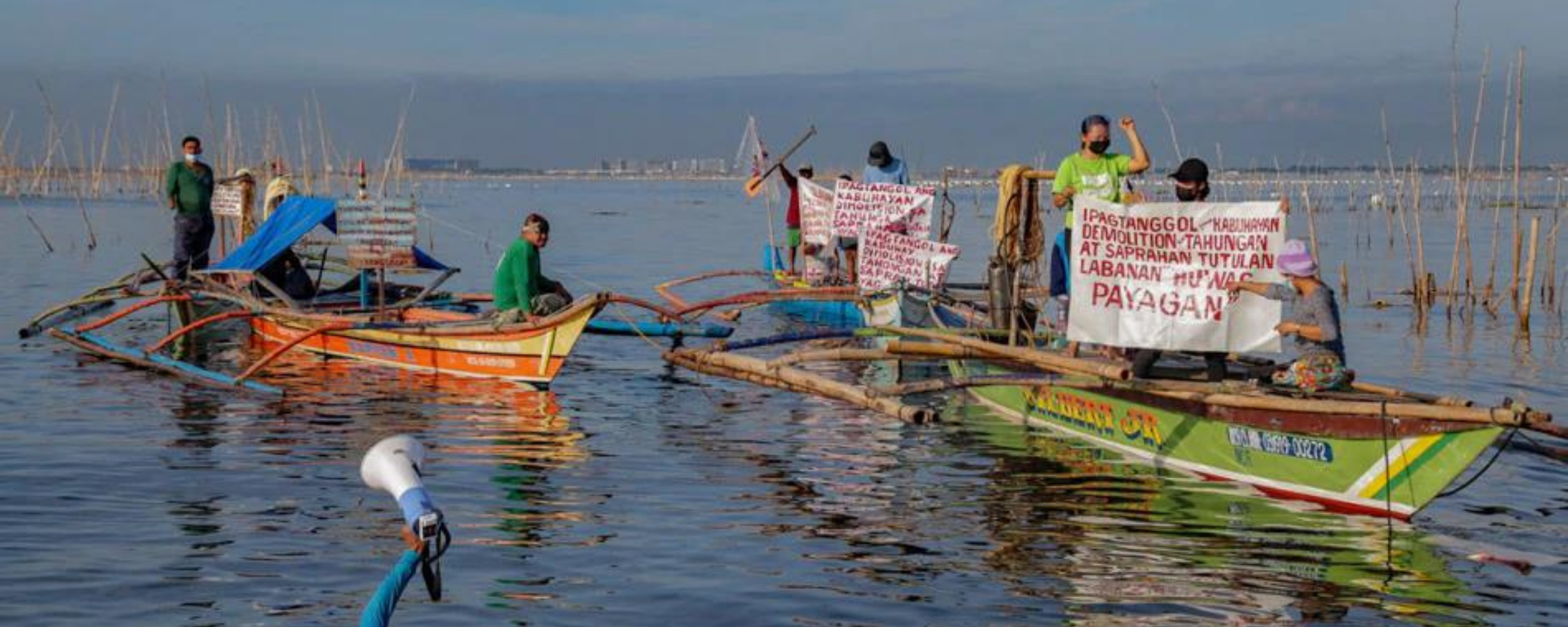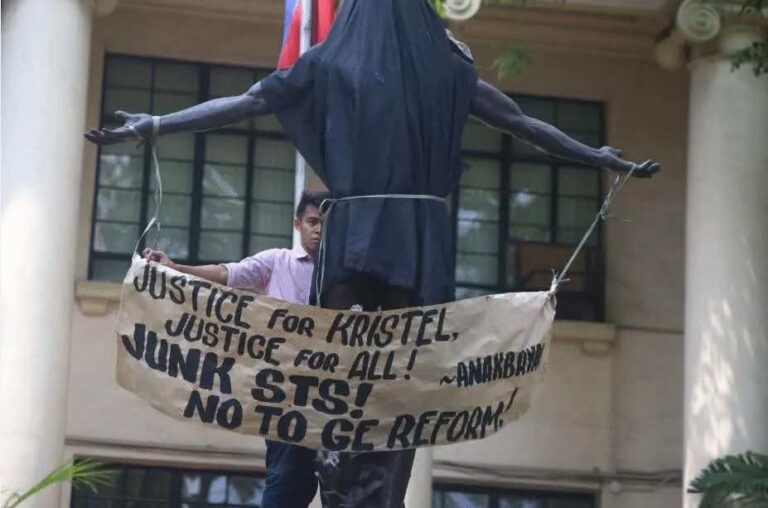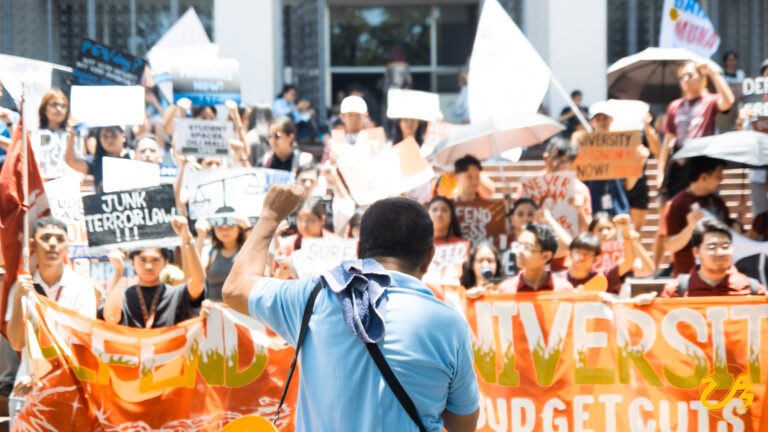
Around 15,000 fisherfolks and coast residents in the Manila Bay have their livelihoods threatened as the Department of Environment and Natural Resources (DENR) issue a demolition order on structures that have been built for mussels and oysters farmers in the Manila Bay.
The municipalities of Noveleta, Kawit and cities of Cavite and Bacoor, Cavite notified the people about the demolition of alleged illegal fishing structures in the Manila Bay by installing billboards in the aforementioned cities a few weeks ago.
Fishers’ group PAMALAKAYA (Pambansang Lakas ng Kilusang Mamamalakaya ang Pilipinas) staged a protest at the DENR headquarters last September 6, Monday, to oppose the order to raze the the cages of fishes, mussels, and oysters as well as the fish pens that are installed in the four coastal cities and province of Cavite. The “bogus” rehabilitation program only targets the fishing aquaculture livelihood and urban poor population in the Manila Bay.
“Rehabilitating Manila Bay should be to restore its marine resources for the benefit of small fisherfolk. But the DENR’s thrust says otherwise,” PAMALAKAYA chairperson Fernando Hicap stated.
Hicap believes that fishing structures made out of bamboo in the Manila Bay do not contribute to any pollution or danger in biodiversity compared to the reclamation of industrial and commercial establishments, proven to discharge solid and liquid wastes into the bay.
The fisher group slammed Sec. Roy Cimatu as the DENR’s policies are “unjust and anti-fisherfolks,” especially that fishing and aquaculture is their only source of livelihood. They asserted its great benefits to the food security of the people.
Additionally, according to PAMALAKAYA, dismantling the fishing structures is just “a precursor to an enormous reclamation plan in Cavite,” particularly in the Bacoor City which has a 420-hectare proposed redevelopment project plan.
“The real targets of this Manila Bay ‘clean up’ are the poor fishing and coastal population across the bay and not the toxic emitting and pollution spawning industrial and commercial establishments. We warn of strong opposition against this destruction of our livelihood and fishing waters under the guise of a bogus clean-up drive,” Hicap furthers.
Another protest movement was conducted in La Huerta, Paranaque on September 7, Tuesday, as 15 boats gathered at the “tahungan” to oppose the said demolition order. Pangisda Paranaque President Gilbert Reyes asserts fishing as their sole source of livelihood which has helped support his family for over four decades.
“Hindi man tayo pwedeng umasa sa ayuda. Magandang may ayuda, malaking bagay. Pero itong demolisyon na ito, hindi po ito kaaya-aya. Kagutuman, kahirapan ang dadanasin ng mamamayang mangingisda,” Reyes stated.
The demolition is set to begin on September 7, Tuesday, in compliance with the DENR directives supposedly in regulation of fishing structures in the Manila Bay.
Featured image courtesy of George Calvelo / ABS-CBN News.








hi!,I like your writing very much! share we communicate more about your post on AOL? I require a specialist on this area to solve my problem. Maybe that’s you! Looking forward to see you.